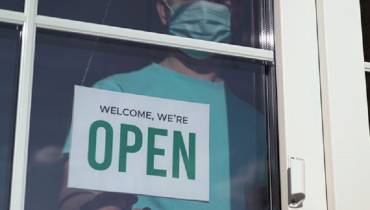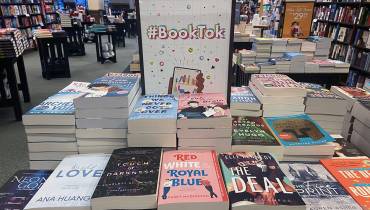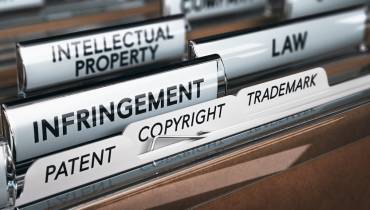Is the Books Publishing Industry Dead?

Woman browsing through print book titles at a bookstore. Photo: Pxhere
When ebooks exploded on the scene, experts predicted that the end of print publishing was nigh. Environmentalists loved ebooks because they saved trees. Consumers liked them because, minus printing and distribution costs, they cost less. Many rushed out and bought e-readers. How we consumed books forever changed.
But did the advent of electronic publishing deliver a fatal blow to print publishing, and how has self-publishing affected the industry?
Has digital killed the publishing industry?
The first ebook appeared in 1998. Surely, twenty-two years is enough time to kill the publishing industry. Yet, publishing houses, bookstores, and libraries are still around. Despite that, many skeptics still believe print publishing is on its way out. But is it really?
According to IBISWorld, the global book publishing industry (print, electronic and audio) is a $110 billion market with nearly 16,000 businesses and over 300,000 employees.
In the first half of 2019, U.S. book publishers netted $6 billion in revenue, a 6.9% year-over-year increase. Of that $6 billion, 22.3% were for digital formats. That means, print books still made up the lion share of revenue.
Why is print still thriving? Because many die-hard book fans still enjoy turning the pages of a paperback. In the U.S., print remains the most popular book format, with 65% of adults having read a print book in the last 12 months.

How self-publishing changed the industry
Traditional publishing soon gained another competitor — self-publishing. Writers no longer need to haul their manuscript from publisher to publisher, hoping one picks it up. They can publish it themselves. Self-publishing was a game-changer.
These days, it’s easier than ever to self-publish. There are plenty of self-publishing companies to assist writers. One author used iUniverse. They helped with editing, cover design, and listed the book on Amazon and BN.com.
Amazon, one of the biggest retailers of ebooks, started Kindle Direct Publishing (KDP) to help writers publish and sell their work to Kindle readers. Barnes & Noble Press is the self-publishing division of America’s largest bookstore chain.
Self-publishing allows authors to control their work from start to finish. The disadvantage is you need cash upfront and it’s risky. Being a rookie, you don’t know the ins and outs of the publishing business. You may spend the money and only sell a small number of books.
With traditional publishers, they absorb the costs and they know what works to sell books. There’s also status behind a publishing house. Some authors feel validated if a big-name publisher picks their book. The disadvantage is that you’re competing against thousands of hopeful authors and your manuscript may not be selected.
The rise of independent publishers
Independent publishers also changed the publishing game. Bigger publishers tend to be flooded with manuscripts. Smaller indie publishers less so. Therefore, a manuscript rejected by a big publisher may stand a chance of being published by a small independent publisher, especially if they specialize in the author’s genre.
The indie publishing market was born out of the frustration of writers who were tired of jumping through hoops with the big publishing conglomerates. Some started their own small independent press to self-publish. Now, indie books make up 30-34% of e-book sales.
How COVID affected the publishing industry?
Early in the pandemic, indie booksellers struggled while online retailers reported a surge in the sale of printed books.
In March 2020, the Los Angeles Times reported that American Booksellers Association (ABA) saw traffic to their site spike by 250% and Bookshop.org saw sales jump by a massive 400%. Children’s book sales also increased when stay-at-home orders came into effect.
By August, NPD Bookscan reported that the print book market was up by 5.5% over last year. They forecast that the US book market is on track to having one of its best years since 2004. It’s still too early to determine the full impact of COVID on the book industry, but so far, things are looking positive.
How to start your own publishing company
Careers in publishing remain plentiful. Many who worked in publishing or who themselves self-published decided to start their own publishing company. If you’re thinking of starting a publishing company, don’t let the skeptics deter you. Clearly, even in the midst of a pandemic, the publishing industry is not dead. Here’s how to start your own publishing company.
1. Decide on what type of publishing you will specialize in
When starting out, choose one area of publishing, such as trade books, academic journals, literary works, or regional and local publications. You can always expand later on. You can drill down further to a genre like romance, suspense and thrillers, mysteries, or children's books.
2. Find capital
If you have your own funds available to use as capital, that’s great. If not, apply for a business loan or wait until you have sufficient financial backing.
You’ll need to cover the following start-up costs:
- company registration fees
- creating a brand identity
- printing stationery
- renting premises (unless you plan to work from home)
- buying publishing software
- setting up a website
- purchasing ISBN numbers
- paying for editors and designers
- hiring staff (unless you plan to fly solo in the beginning)
3. Choose a business structure
A publishing company can be structured as a sole proprietorship, partnership, Limited Liability Company (LLC), or corporation.
Sole proprietorship is only a good option if you plan to be the sole owner for as long as the business is around.
LLC is often the best option for a publishing company. In an LLC, owners are not solely responsible for company debt and investors prefer it as it lowers their risk of liability.
4. Pick a business location
Many startup publishers work from home to keep costs down. If an online interface is how you will run the business, working from home is fine. If, however, you plan to hold business meetings, some may see a home office as amateurish.
You can hold meetings at coffee shops or co-working spaces, but having your own premises is always more professional. If you do decide to work from home, use a post office box, registered agent, or virtual office as your business addresses.
5. Set up a business bank account
Even if you plan to start out solo and only sell your own books, it’s best to set up a separate business bank account. Keeping personal and business finances separate makes it easier to manage accounting and tax processes.
In conclusion
Just as digital music didn’t kill radio, digital publishing didn’t kill print. Radio adapted by offering live streaming. The publishing industry adapted by embracing ebooks and audiobooks.
With the rise of self- and indie-publishing, we now have a more robust industry with more options available to writers, and that’s a good thing.




















